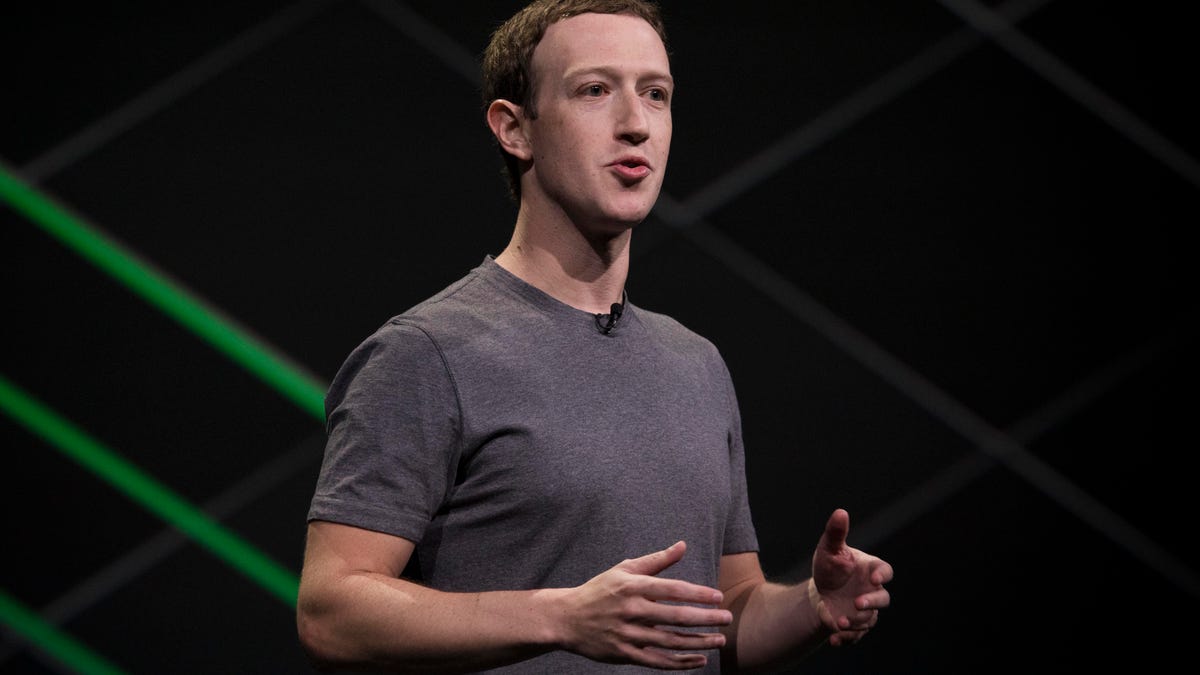Zuckerberg says Facebook profit will take hit to prevent abuse
The social network's CEO said he's "dead serious" about fixing the problem.

On the same day Facebook testified in two congressional hearings, the social network also released its financial results.
As Facebook executives faced congressional scrutiny over how Russia might have abused its social network, CEO Mark Zuckerberg said the company is going to put its 2 billion users ahead of profit, and that beefing up its security will cut into earnings.
He made that statement on Wednesday as Facebook, one of the biggest advertising operations in the world, reported sales and profit that blew past Wall Street estimates.
"I am dead serious about this," Zuckerberg said on a conference call with analysts. He said Facebook will hire an additional 10,000 people to its security teams to prevent abuse on its platform, though not all of them will be full-time employees. The move, he said, will impact the company's profitability. "I wanted our investors to hear that directly from me."
"I've expressed how upset I am that the Russians tried to use our tools to sow mistrust," Zuckerberg continued. "What they did is wrong and we are not going to stand for it."
His statements came after two congressional hearings that morning, where Facebook General Counsel Colin Stretch attempted to defend the world's largest social network from lawmakers looking for who to blame for Russia's meddling in last year's bitter election.
The hearings underscore how much Silicon Valley has had to reckon with its massive power. The tech giants, and their almighty algorithms, essentially have the ability to decide whatever people see when they visit their sites. For Facebook, that means controlling what the 2 billion people who use it every month see on their news feeds. The increased prodding from the federal government means the looming possibility of regulation.
The facts don't help. In September, Zuckerberg disclosed Facebook sold $100,000 worth of ads to Russian-linked accounts. Earlier this week, Facebook said Russian-backed content was seen by more than 126 million people.
Sheryl Sandberg, Facebook's COO, promised to tighten controls around ads and posts to make sure content on Facebook is authentic. Facebook has been on an all-out blitz trying to send that message to lawmakers. Sandberg visited the Capitol last month to try to pacify legislators who have been pointing fingers at Facebook.
"When I was in Washington a few weeks ago, I made clear that we are determined to do everything we can do to minimize abuse going forward," she said. "We're working with Congress on new requirements for online political advertising but we are not waiting for legislation."
Last week, Facebook introduced new rules around ads aimed at bringing more transparency to political ads. Those ads will have a "paid for by" label, which people can click on to get more information about where the ads came from. The company said it's also building an archive of federal election ads with financial data and information about different demographics they targeted.
Despite all the backlash, Zuckerberg's well-oiled machine kept chugging along. In the quarter ended September 30, the social network tallied $10.3 billion in sales, beating Wall Street estimates of $9.84 billion. Profit was $1.59 per share. Analysts expected $1.28 per share. Facebook's user base rose to 2.07 billion a month, a 16 percent jump from the same time last year.
On Tuesday, during the first of the three hearings this week, Stretch told the Senate Judiciary Subcommittee that foreign interference on Facebook was "reprehensible and outrageous." But Sen. Al Franken, a Democrat from Minnesota, lashed out at Facebook for not connecting the dots and doing something sooner to try and stop it. And earlier Wednesday, Stretch said the Clinton and Trump campaigns spent a combined $81 million on Facebook ads before the election.
Facebook wasn't alone in its grilling on Capitol Hill. The top lawyers at Google and Twitter, Kent Walker and Sean Edgett, also faced questions from lawmakers about how their platforms could have been misused. All three companies agreed they have obligations beyond just being platforms, but are also responsible for content on their sites.
On the whole, Facebook had to perform a precarious dance on Wednesday. As it met with Congress at 9:30 a.m. ET and again at 2 p.m. ET, Stretch attempted to downplay Facebook's ads, saying Facebook isn't "in a position to discuss" if the ads did or didn't have an effect on the outcome of the election. By the close of market, Facebook was making the quarterly pitch to investors that its ads are powerful enough, though, to influence the buying decisions of consumers.
Meanwhile, Facebook is growing. The company's headcount rose to more than 23,100 people in the third quarter. Facebook also said it makes most of its advertising revenue -- 88 percent -- on mobile devices.
First published Nov. 1 at 1:26 p.m. PT.
Update, 3:43 p.m. PT: Adds quotes and information from Facebook's conference call.
The Smartest Stuff: Innovators are thinking up new ways to make you, and the things around you, smarter.
Special Reports: CNET's in-depth features in one place.

